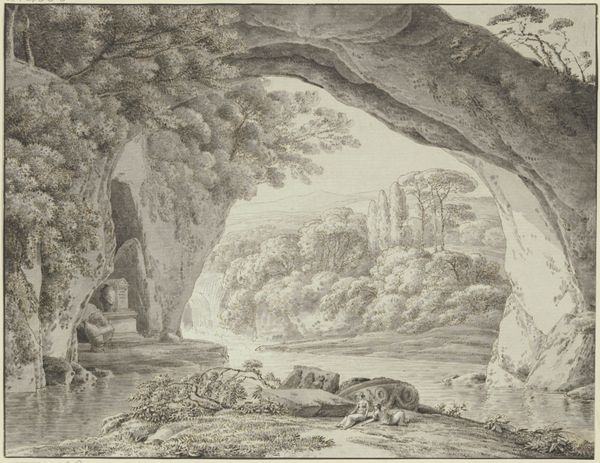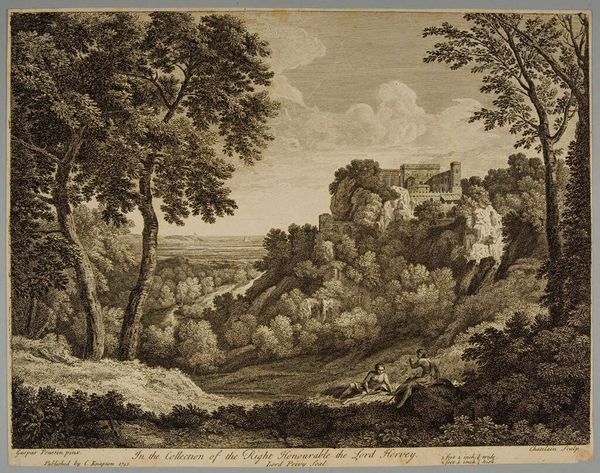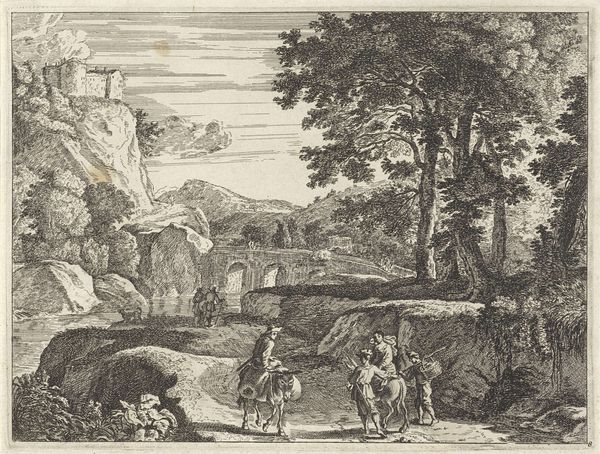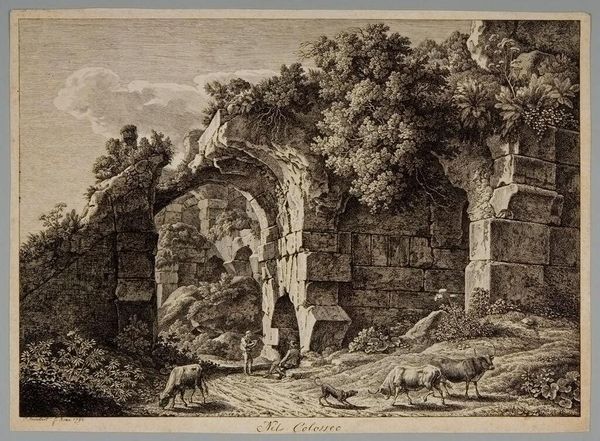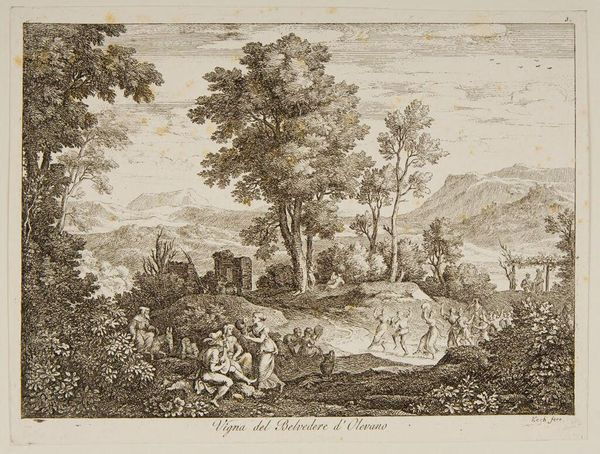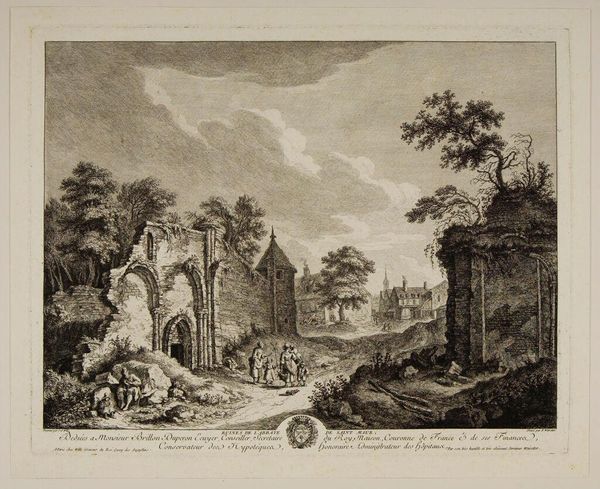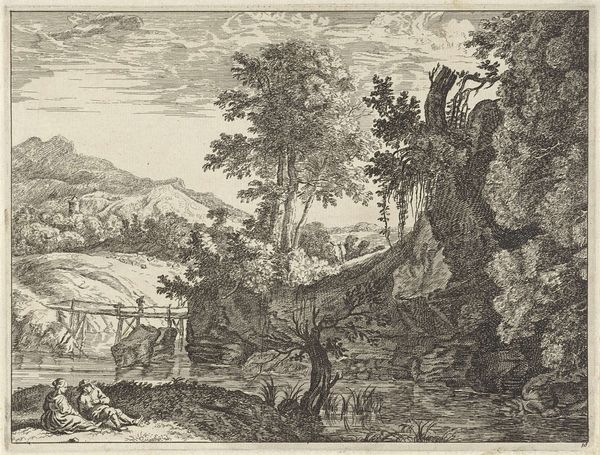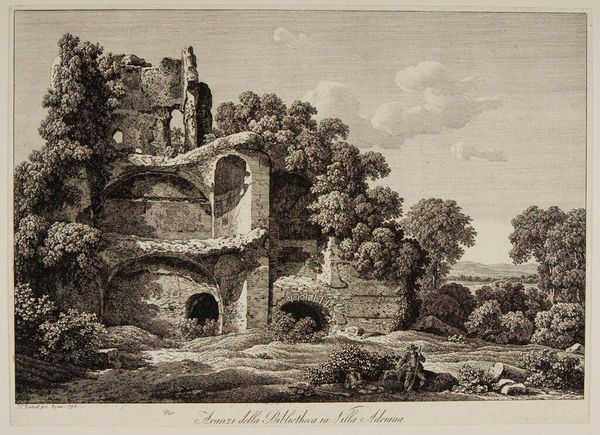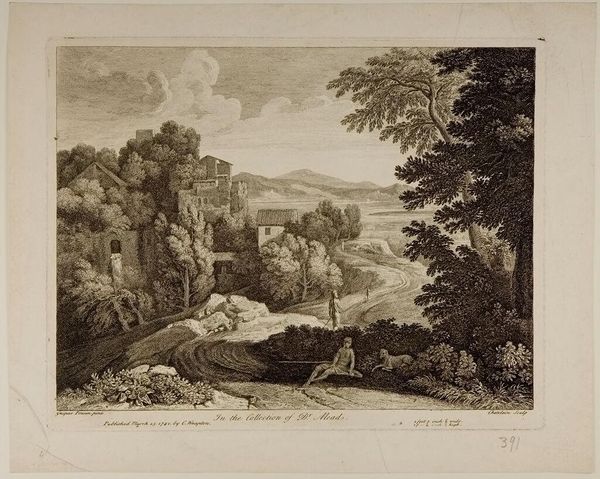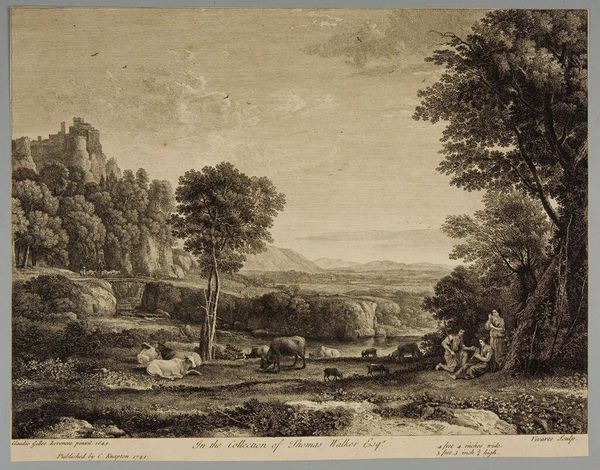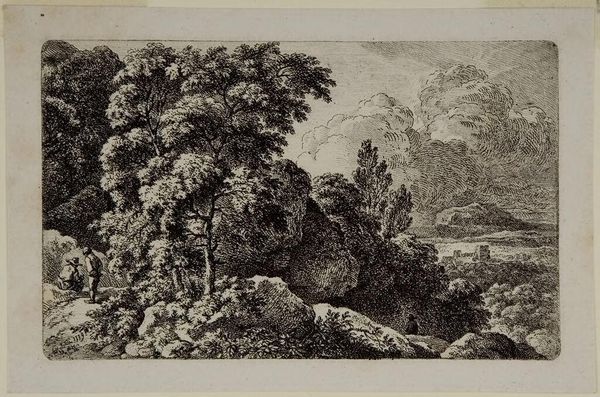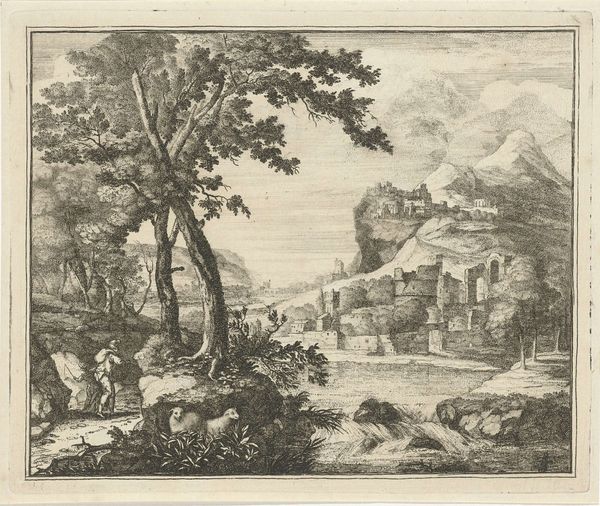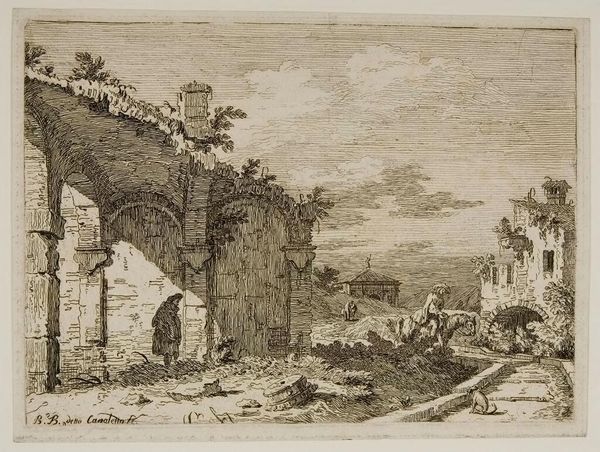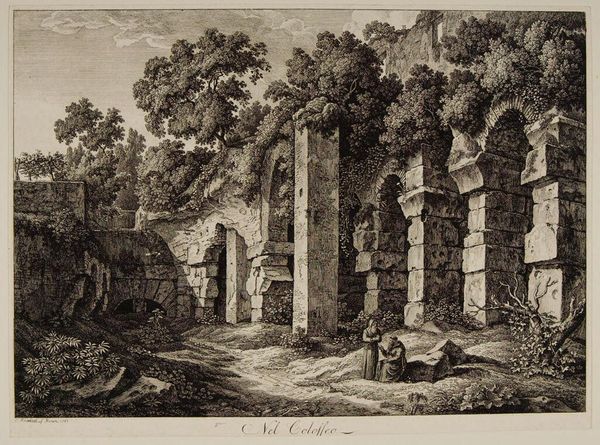
Copyright: CC0 1.0
Curator: This etching is titled "Avanzo del teatro a Albano," made by Johann Christian Reinhart. Immediately, I'm struck by the stark contrast and the feeling of melancholic abandonment. Editor: Yes, it's incredibly evocative. I'm drawn to how the ruined theatre blends with the natural landscape. One could even say that the ruin represents an act of nature reclaiming its space as though to erase evidence of previous colonial settlements on indigenous lands. Curator: Exactly. Ruins have long symbolized the transience of power. Consider the Grand Tour, a pilgrimage for elites to experience and appropriate historical narratives for their own legitimization. Editor: And here, a lone figure reclines near the remains of the theatre, perhaps contemplating the weight of history, or the sheer futility of human endeavor against the vastness of time and nature. It is also a symbol of power and prestige, reflecting how the dominant cultures appropriated ancient ruins to reflect their cultural status. Curator: Perhaps, but the image also taps into a broader sense of longing for a past, idealized or not, and the political power dynamics inherent in whose past gets remembered and celebrated. Editor: I agree. The piece invites us to confront our own relationship with the past and its impact on shaping our present. Curator: It certainly urges reflection on the selective nature of historical narratives and the sociopolitical underpinnings.
Comments
No comments
Be the first to comment and join the conversation on the ultimate creative platform.
